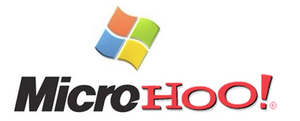As you are probably aware, some time ago Yahoo and Microsoft announced their intention to merge their search operations – with Yahoo using Bing as the source of their organic search traffic, and Microsoft planning on incorporating Yahoos PPC Ads into the Bing search results.
 Testing has been underway for a couple of months or so, with Yahoo already incorporating up to 25% of Bing’s search results, and in July, Yahoo announced that the organic search results on Yahoo will be powered by Bing 100% beginning in August/September.
Testing has been underway for a couple of months or so, with Yahoo already incorporating up to 25% of Bing’s search results, and in July, Yahoo announced that the organic search results on Yahoo will be powered by Bing 100% beginning in August/September.
Will the Yahoo-Bing change affect your website traffic?
In the USA, Yahoo and Microsoft sites currently have a combined search market share of approximately 30%. In Australia (where Google has a much bigger slice of the search pie) Yahoo/Bing combined searches still account for about 10% of total searches – which is still a pretty significant volume of searches.
If your site currently receives higher rankings (and traffic) from Yahoo than it does from Bing, it is very likely that your overall traffic will drop in August/September when the changes are applied. There are a number of ways you can check how much of an impact this may have on your site :
- Check your rankings for primary keywords under Yahoo and Bing. You can do this yourself by manually searching for your primary keywords in each search engine – or as us about our search ranking reports service.
- Check your user stats or analytics to compare the relative volumes of traffic being generated by Bing and Yahoo. Look at this over the last couple of months, because recent Yahoo testing may already be having an impact.
If you are not sure on how to access or interpret your usage stats, contact us and we should be able to assist. If you are currently getting higher rankings in Yahoo, or receiving significantly more traffic from Yahoo than Bing, there is a good chance that your search traffic will drop when the Bing search results are fully applied to Yahoo. Conversely, if your website is already listed for the right keywords in the Bing results, you will very likely get an increase in website visitors.
How to optimise your website for Bing
Fortunately, optimising your website for Bing is really not much different from optimising your site for Google. So if you already have an optimisation strategy in place, it will probably help your Bing rankings.
Like Google, improving your search rankings in Bing requires optimised web pages (with keyword rich content) and good incoming links. One difference is the priority that Bing puts on the various ranking factors. Optimisation strategies that work well with Google may not have the same effect on Bing and vice-versa. Here are a few suggestions that will help you to get the best ranking results for your website:
- Take a look at the pages that already get good rankings for your primary keyword phrases in Bing and compare them to the pages that get top results in Google. You may be able to determine differences in the types of pages that are ranking better in each search engine.
- Vary your optimisation strategies by Optimising some of your pages for Google and other pages for Bing. This can increase your chances of getting listed on the first result page.
- Focus on a single primary keyword phrase to optimise for each page. It is much better for a web page to be highly relevant for one key phrase than vaguely relevant for many key phrases.
- If possible, optimise each page of your site for a dedicated search engine/keyword combination. The more targeted the optimisation, the more likely it is that the web page will be listed in the top results.
You are likely to lose traffic if your web page currently has high rankings on Yahoo but not on Bing as Yahoo’s own results will be dropped after the transition to the new Bing results. Therefore, the sooner you start to optimise some of your web pages for Bing, the better.
 The intent is that Yahoo will start to use Bing for their search results, and Microsoft will start to show Yahoo paid ads on their search properties. It is early days yet and still not clear how many of their overlapping products/services are going to be handled. My guess is that some may be consolidated, some will be retained and some may even be dropped all together.
The intent is that Yahoo will start to use Bing for their search results, and Microsoft will start to show Yahoo paid ads on their search properties. It is early days yet and still not clear how many of their overlapping products/services are going to be handled. My guess is that some may be consolidated, some will be retained and some may even be dropped all together.